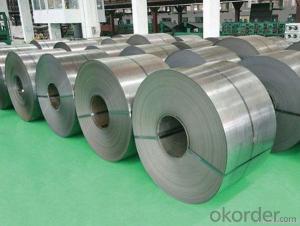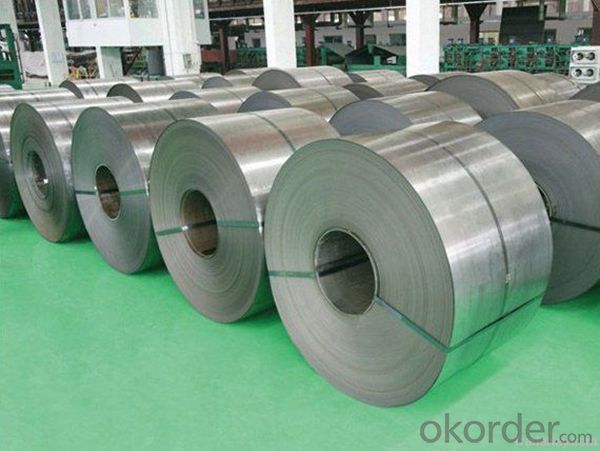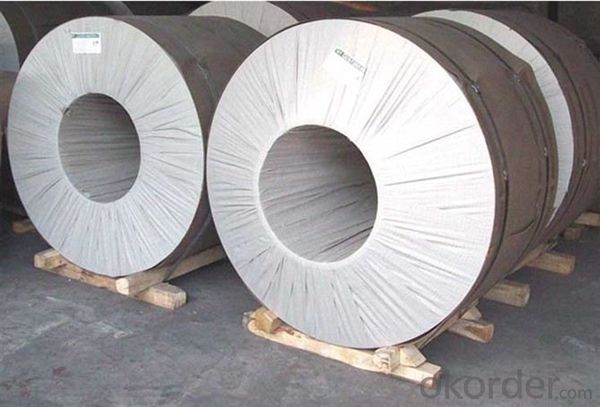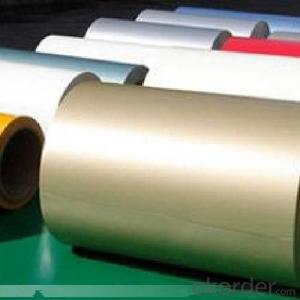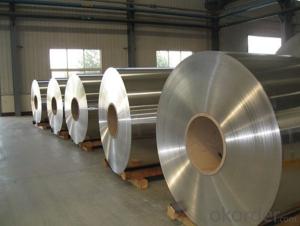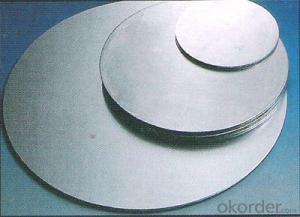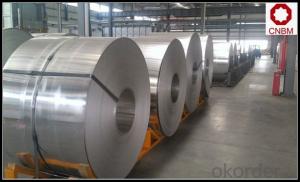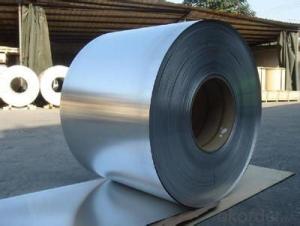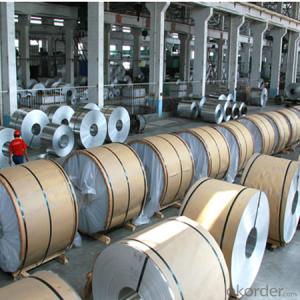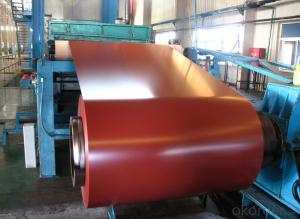China Aluminum Coil Slitter Quotes - Rolls Aluminum Mill Finished 3003 H14 China Supplier
- Loading Port:
- Shanghai
- Payment Terms:
- TT OR LC
- Min Order Qty:
- 5 m.t.
- Supply Capability:
- 10000 m.t./month
OKorder Service Pledge
OKorder Financial Service
You Might Also Like
Specification
1. Specification of Rolls Aluminum Mill Finished 3003 H14 China Supplier
characteristics | Application |
1) Super peeling strength | 1) Building exterior curtain walls |
2) Excellent surface flatness and smoothness | 2) Decoration and renovation additions for old buildings |
3) Superior weather, corrosion, pollutant resistance | 3) Decoration of interior walls, ceilings, bathrooms, kitchens and balconies |
4) Even coating, various colors | 4) Shop door decorations |
5) Fireproof, excellent heat and sound insulation | 5) Advertisement board display platforms and signboards |
6) Superior impact resistance | 6) Wallboards and ceilings for tunnels |
7) Lightweight and easy to process | 7) Industrial materials, materials for vehicles and boats |
2. Application of Rolls Aluminum Mill Finished 3003 H14 China Supplier
(1).Interior: wall cladding, ceilings, bathrooms, kitchens and balconies, shutters, doors...
(2).Exterior: wall cladding, facades, roofing, canopies, tunnels,column covers , renovations...
(3).Advertisement: display platforms, signboards, fascia, shop fronts...
3. Feature of Rolls Aluminum Mill Finished 3003 H14 China Supplier
*Such coil is specially designed to replace aluminum ingot, due to the high export tax of aluminum ingot, the coil has better price than ingot.
*This type of coil can fit customer's remelting furnace just like ingot, no need to make any change to the production line that was previously used for ingot. The standard coil size and weight is very suitable for the feed gate of furnace.
*This type of coil causes less material wastage than ingot when remelted.
*Our coil is made directly from ore, no need to go though the ingot making process, quality is much better than other suppliers who use ingot scrap to make coil.
Be free from Oil Stain, Dent, Inclusion, Scratches, Stain, Oxide Dicoloration, Breaks, Corrosion, Roll Marks, Dirt Streaks and other defect which will interfere with use
4. Certificate:
SGS and ROHS(if client request, paid by client), MTC(plant provided), Certificate of Origin(FORM A, FORM E, CO), Bureau Veritas and SGS (if client request, paid by client), CIQS certificate
5. Image of Rolls Aluminum Mill Finished 3003 H14 China Supplier
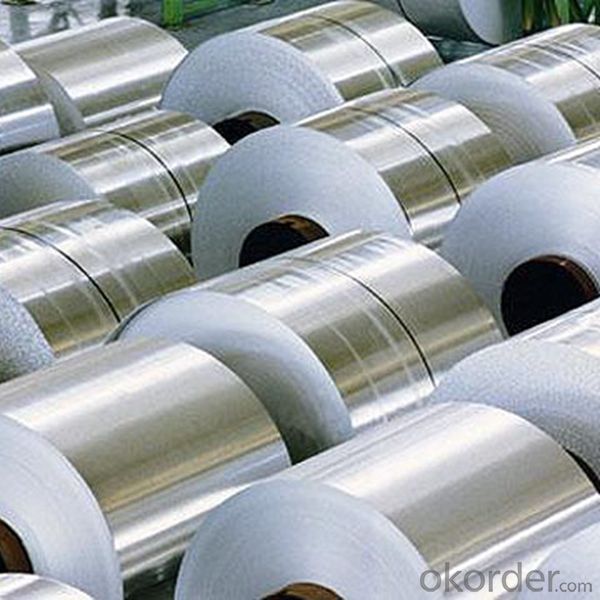
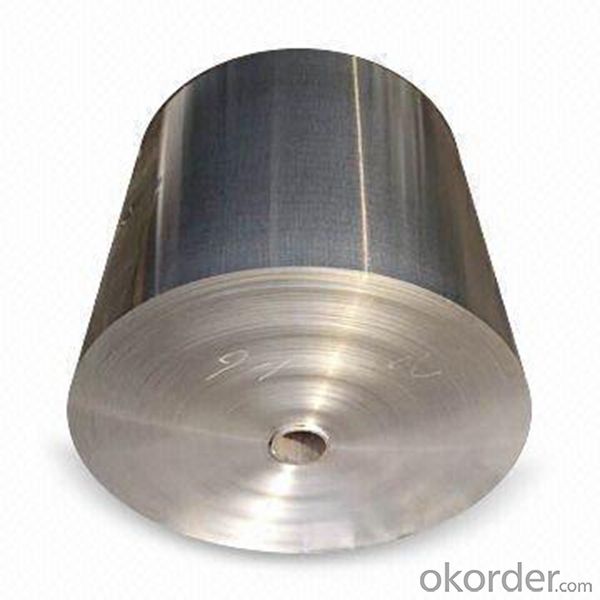
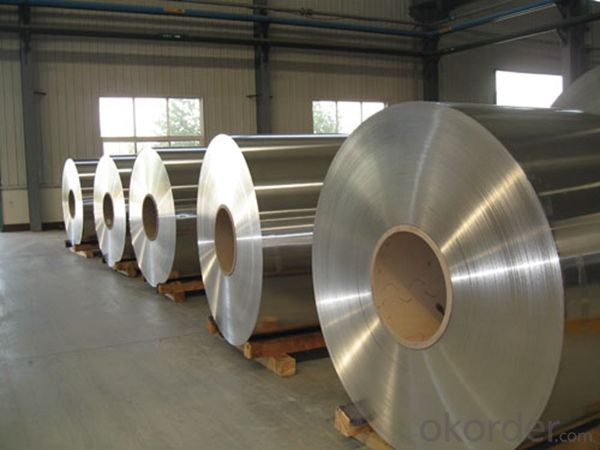
6. Package and shipping of Rolls Aluminum Mill Finished 3003 H14 China Supplier
eye to wall
eye to the wall
with wood pallet (wooded case also available)
7. FAQ
1) What is the delivery time?
Dpends on actual order, around 20 to 35 days
2)What is the QC system:
We have QC staff of 20 persons and advanced equipment, each production is with MTC traced from Aluminum ingot lot.
3) What market do you mainly sell to?
Australia, America, Asia, Middle East, Western Europe, Africa etc
- Q: May anyone tell me what's the product when hydrochloric acid reacts with aluminum?HCl + Al → ?
- 2Al + 6HCl - 2AlCl3 + 3H2
- Q: Can you create a tank, AFV, IFV etc. from aluminium or is this just a stupid idea that would kill everyone inside?
- Sure. The Vickers Mk 7 export tank had a turret of aluminum with composite armor layered over and mounted on a Leopard II hull. The M113 armored personel carrier, the most produced armored vehicle since WWII was made from aluminum as have been many other light armored vehicles. The protection these vehicles provide is limited to small arms fire however. Aluminum can't keep out large caliber projectiles and spalls badly against HEAT ammunition.
- Q: Why 5052 turn black after annealing during the production of aluminum alloy?
- It has been sooted.
- Q: How are aluminum coils used in the production of electronic devices?
- Aluminum coils are used in the production of electronic devices for various purposes such as providing electrical conductivity, heat dissipation, and electromagnetic shielding. These coils are typically used in components like transformers, inductors, and motors, where they help in the efficient transfer of electrical energy. Additionally, aluminum coils are often employed in cooling systems to dissipate heat generated by electronic components, ensuring their optimal performance and preventing overheating. Furthermore, aluminum coils can be utilized to create electromagnetic shields that protect sensitive electronic circuits from external electromagnetic interference, thus enhancing the overall reliability and functionality of electronic devices.
- Q: What are the rules and regulations regarding the use of aluminum coil in commercial kitchen settings?
- <p>Yes, there are regulations on the use of aluminum coil in commercial kitchens. These regulations often relate to food safety, hygiene, and the material's suitability for contact with food. Aluminum is generally safe for food contact, but it must meet specific standards to ensure it does not leach harmful substances into food. Regulations may vary by country or region, with some areas having strict guidelines on the types of aluminum alloys allowed and their intended use. Compliance with these regulations is crucial to avoid health risks and legal penalties. It's important for commercial kitchens to use food-grade aluminum and to follow local health department guidelines.</p>
- Q: Can aluminum coils be used in the production of aluminum louvers?
- Yes, aluminum coils can be used in the production of aluminum louvers. Aluminum coils are typically used as a raw material in various manufacturing processes, including the production of aluminum louvers. They can be easily formed and shaped into the desired louver design, offering durability and corrosion resistance.
- Q: How are aluminum coils protected against oxidation?
- Aluminum coils are protected against oxidation through a process called aluminum coil coating. This involves applying a protective coating or layer onto the surface of the coil to prevent direct contact with oxygen and other environmental elements that may cause oxidation. The protective coating acts as a barrier, shielding the aluminum from moisture, air, and other corrosive substances. There are different types of coatings used for aluminum coil protection. One common method is the application of a clear or colored organic coating, such as polyester or polyvinylidene fluoride (PVDF). These coatings not only provide a barrier against oxidation but also enhance the durability and aesthetic appeal of the coils. Another method is anodizing, which involves immersing the aluminum coil in an electrolytic solution and passing an electric current through it. This process forms a layer of aluminum oxide on the surface of the coil, which acts as a natural protective barrier against oxidation. Anodized aluminum coils are known for their excellent corrosion resistance and can be further enhanced with additional coating layers. Additionally, aluminum coils can be protected through the use of chemical conversion coatings. These coatings, such as chromate or phosphoric acid-based coatings, chemically react with the aluminum surface, forming a protective layer that prevents oxidation. Overall, the protection of aluminum coils against oxidation is crucial to ensure their longevity and performance. By applying various coatings or undergoing anodizing or chemical conversion processes, the coils can effectively resist oxidation and maintain their integrity even in harsh environments.
- Q: Is it safe to use aluminum coils in various applications?
- <p>Yes, aluminum coils are generally safe to use. They are widely used in various industries due to their excellent thermal conductivity, corrosion resistance, and lightweight properties. Aluminum coils are non-toxic and do not emit harmful substances, making them safe for applications such as food packaging and construction. However, safety can depend on specific uses and manufacturing processes, so it's important to ensure that the coils meet the required safety standards for their intended application.</p>
- Q: Does anyone know if aluminum skateboards are good?
- I haven't seen one since the old QuickSilver-Silver Surfer(circa 1979). They look great, but they become useless when scratched. Which means....you can't really use them for anything. They're not as flexible as wood....and.......Wait until you get hit in the shin with an aluminum skateboard. Aircraft metal my(explicative deleted). My guess is they're inexpensive because they're trying to get the word out. The company owners probably no very little about skateboarding.
- Q: Are there any limitations on the welding or soldering of aluminum coils?
- Yes, there are limitations on welding or soldering aluminum coils. Aluminum has a relatively low melting point and high thermal conductivity, which can make it challenging to weld or solder effectively. The oxide layer on the surface of aluminum also makes it difficult to achieve a strong bond. Additionally, aluminum is prone to distortion and warping during the welding or soldering process. Therefore, special techniques and equipment, such as using specialized fluxes, inert gases, and proper pre-cleaning, are required to overcome these limitations and achieve successful welds or solder joints on aluminum coils.
Send your message to us
China Aluminum Coil Slitter Quotes - Rolls Aluminum Mill Finished 3003 H14 China Supplier
- Loading Port:
- Shanghai
- Payment Terms:
- TT OR LC
- Min Order Qty:
- 5 m.t.
- Supply Capability:
- 10000 m.t./month
OKorder Service Pledge
OKorder Financial Service
Similar products
Hot products
Hot Searches
Related keywords
